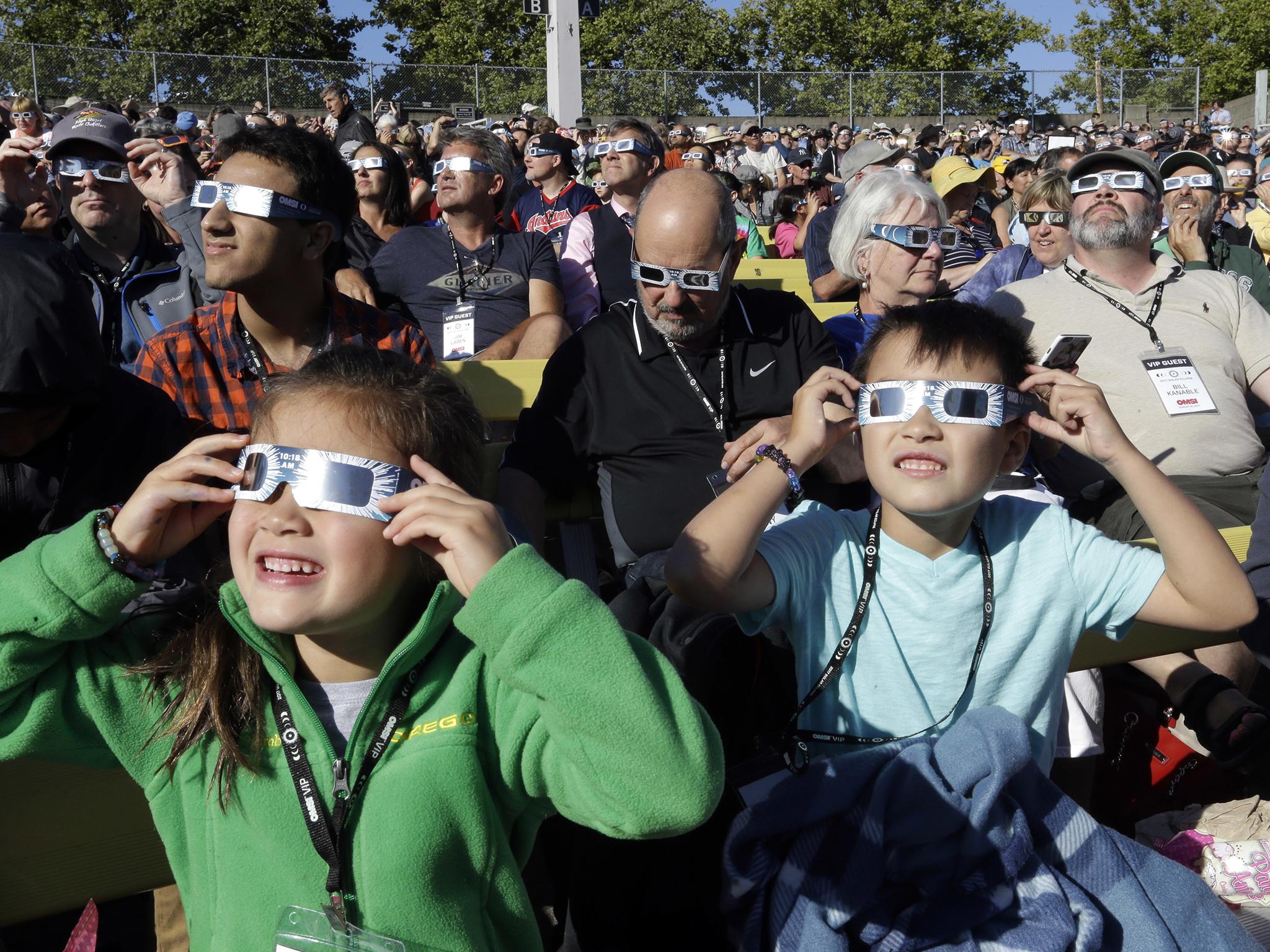Solar eclipse lovers from all over New York come together to witness rare sight
The diverse crowd buzzed with excitement in anticipation of the eclipse

As the moon slowly turned the sun over New York City into a crescent — creeping toward a partial eclipse— the crowd at the American Museum of Natural History occasionally burst into premature applause.
Staring up through silver-lensed glasses made special to block direct sunlight, families and neighbours had gathered on a stone terrace outside to wonder at the magnificence of the universe. But the universe — or at least the sky above Manhattan — chose to be a bit mischievous, sporadically blocking the celestial sight with cloud cover, tricking the craned necks below that the eclipse had finally come.
It didn’t matter, though. The eclipse was being billed as a once-in-a-lifetime event. Why not get your money’s worth in, applause-wise?
“I haven’t experienced an eclipse in a very long time,” Greg Packer, a retired highway worker, told The Independent. Mr Packer, 53, rushed around excitedly, smiling and joking with strangers as he ran into them. “It’s not only nostalgic… It’s watching science and nature at work.”
Nearby, three-year-olds Carl Martin and Aiden Johnson played a game of tag while their mothers watched. Carl and Aiden have a knack for science and space, their mothers said, and like to visit the museum whenever they can. Plus the mothers don’t exactly begrudge an opportunity to witness a bit of history with their children.
“I remember [watching a solar eclipse] from my childhood,” Sharnette Johnson, 36, said. “That’s why I wanted to bring him here.”
Solar eclipse 2017
Show all 12The crowds that came to the museum, located just off of Central Park, formed a long line of eager would-be spectators early in the day. Security officers outside urged people to consider the open fields in nearby Central Park to view the solar eclipse — which would not be full in the city, as it is north of the path of totality — since the museum would be pretty packed. If they didn’t have the special glasses designed for viewing the sun, they were instructed how to make a pinpoint viewer.
Once, inside, a seemingly endless fleet of strollers jostled to make it to the terrace, cutting one another off in the race to claim precious elevator space. A line twisted through the museum’s Rose Centre for Earth and Space — a giant cube of glass that houses scale-models of the solar system’s planets, including a depiction of the sun several stories tall.
A live stream showed what those in New York couldn’t see: The view from the path of totality where a total eclipse occurred. The last time the contiguous United States was able to see a total eclipse of the sun was in 1979, according to NASA.
Monday's eclipse’s path of totality — where the moon would completely block out the sun — extended in a line from Oregon all the way west to South Carolina. But, the entirety of the US and most of North America was able to see at least a partial eclipse.
Outside, on the terrace, Norman Cook, 71, and Pamela Wheeler, 63, chatted about their lives. The two had just met on their quest to see the solar eclipse, but it turns out they’ve been neighbours all their lives. Both retired, they got to chatting and realised they’re both from the Harlem neighbourhood in Manhattan. They have a mutual acquaintance, too, but they’d have never known that before.
Mr Cook and Ms Wheeler said the good spirits shared amongst the eclipse crowd at the museum should be a more common experience. Why should it take a rare alignment of earth’s largest satellite and the sun for people to come together, even if America is in the midst of a heavily divided political climate?
“It feels great. We should be like this on a more normal basis,” Ms Wheeler said. “There needs to be more love in the world.”
Subscribe to Independent Premium to bookmark this article
Want to bookmark your favourite articles and stories to read or reference later? Start your Independent Premium subscription today.

Join our commenting forum
Join thought-provoking conversations, follow other Independent readers and see their replies